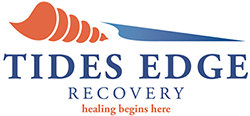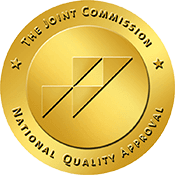Detox is more than letting your body clear substances. It is a process that includes physical withdrawal, emotional steadiness, and mental health support. If you are weighing your options, you might want to know how the different types of therapy fit into a safe detoxification program. At Tides Edge Detox in Jacksonville, FL, we combine medical care with therapy in a calm, professional setting so you can focus on stabilization, comfort, and what comes next. We integrate therapy into treatment during detox because change starts early, and the right support can ease symptoms, reduce anxiety, and help you feel confident about the next step.
What is detox therapy?
Detox therapy is the therapeutic care that takes place during medical detoxification. While clinicians manage withdrawal with medications and monitoring, therapists provide counseling to help you manage emotions, understand triggers, and begin to build skills that support your health. The goal is not to solve everything at once. During the detoxification process, therapy focuses on safety, stabilization, and preparing you for longer term addiction treatment. At Tides Edge Detox, licensed clinicians create an individualized treatment plan that matches your history, your substance use, and your immediate needs, then adapt the plan as your situation evolves.
Why therapy during detox matters
The body and the mind affect each other. When you stop alcohol or drugs, your body reacts, and so do your thoughts and feelings. Anxiety may spike, sleep may be disrupted, and old stress can surface. Therapeutic support during detoxification helps you regulate emotions, reduce stress, and make practical choices. Evidence-based therapies paired with mental health care can lower relapse risk by teaching coping strategies, improving understanding of your triggers, and connecting you with support. This combination matters, because it is common to return to substance use to quiet discomfort if you do not have tools ready.
A simple truth, even if it is not pretty: early in detox, small things can feel huge. A hard conversation, a long night, a restless morning. Therapy offers a safe environment where you can talk it through, normalize what you are feeling, and choose a healthier next move.
Core therapies offered at Tides Edge Detox
Cognitive-behavioral therapy (CBT)
CBT helps you identify negative thought patterns that push substance use, then challenge and reshape them. In detox, CBT is short and focused. For example, if a thought like, “I cannot handle this discomfort,” shows up, CBT helps you test it, replace it with a more balanced thought, and choose a strategy that aligns with your values. With gentle prompts, you practice emotional regulation techniques, like paced breathing or urge surfing, to ride out cravings safely. CBT helps many patients reduce anxiety during withdrawal and build skills to manage symptoms without returning to use.
Individual therapy
In one-on-one counseling, you have space to speak openly with a licensed therapist. Sessions explore root causes of addiction, such as trauma, chronic stress, depression, or relationships that have become tangled with substance use. Together, you and your therapist set immediate goals, clarify triggers, and practice coping skills you can use today.
Privacy and trust matter in therapy. We honor confidentiality, we move at a pace that matches your medical status, and we meet you with clinician honesty. If you have thought, “I should be stronger than this,” we will help you notice that voice, then choose self-compassion and workable strategies instead.
Group therapy sessions
Group therapy offers benefits that individual sessions alone cannot. In well-led groups, you hear your experience reflected back by group members, and you learn from the strategies that helped others. During group therapy sessions, the focus is on connection and practical tools. You practice communication, you receive feedback, and you gain accountability. Therapy groups can make people feel less isolated, which lowers shame and helps healing.
- How group therapy work supports recovery: By sharing struggles and wins, you build skills for coping with cravings, managing stress, and repairing relationships. Hearing others describe anxiety, sleep problems, or frustration helps normalize symptoms in detox. When you learn what worked for them, you add those tactics to your own plan.
- What group therapy offers: A structured place to practice talking about urges, set boundaries, and ask for help. The rhythm of groups, with regular check-ins and topics, creates stability when life feels off balance.
If you worry that groups are not for you, that is common. Many patients arrive tired, guarded, and unsure about opening up. In practice, most find that starting small, even listening more than talking at first, is enough to get the benefits of peer support.
Holistic therapies that enhance addiction treatment
Yoga therapy
Gentle yoga can reduce stress, support the body as it stabilizes, and improve sleep. Movements are adapted to your energy and withdrawal symptoms, and the focus is on breathing, grounding, and safety. For many patients, yoga eases muscle tension and improves mood during detoxification, which can make it easier to stay with treatment. When practiced in person with trained staff, it is less about flexibility and more about reconnecting to your body in a kind, steady way.
Mindfulness and meditation
Mindfulness practices teach you to notice urges, thoughts, and physical sensations without reacting to them. Short guided practices can help during withdrawal, when anxiety and cravings rise. You learn techniques like body scan, paced breathing, and three minute check-ins that fit the moment. Over time, mindfulness supports mental health, emotion regulation, and better decision-making. It is a simple set of techniques, and it is a skill you can use anywhere.
Nutrition and lifestyle support
Stabilizing nutrition, hydration, and sleep helps the body recover. During detoxification, clinicians watch for dehydration and electrolyte imbalance, and may use medications to treat nausea, stomach upset, or sleep issues. Balanced meals and a daily routine support well-being and reduce stress on the nervous system. You do not need a perfect diet. Small steps, like consistent meals and enough fluids, can make mornings feel lighter and increase confidence in your ability to maintain progress.
The benefits of an integrated therapy approach
Detoxification is safest in a medical setting with physician oversight and nursing care. When medical supervision is combined with the right types of therapy, the benefits compound. You get help with withdrawal symptoms, anxiety and depression, and the emotional weight that comes with cessation of alcohol or drug use. The right mix reduces physical discomfort, improves emotional stability, and lays a stronger foundation for long-term sobriety.
- Safety and comfort: Monitoring, appropriate medications, and rapid response to symptoms protect your health.
- Emotional steadiness: Individual and group therapy sessions give you tools to handle fear, irritability, and low mood.
- Clear next steps: Therapists help you plan for ongoing treatment, support groups, and community resources so you do not leave without a plan.
Our approach is holistic, addressing mind, body, and spirit wellness. That does not mean a promise of full recovery in a few days. It means we focus on what helps right now, we build momentum, and we connect you with the care that continues after detoxification.
Mental health and long-term recovery from substance use
Therapy during detox prepares you for the work of change. The skills you start to practice, like urge surfing, grounding, and communication, support sustained sobriety. You also begin to see patterns tied to your substance use disorders, such as how certain relationships or stress cycles fuel cravings. That awareness is the starting line for personal growth.
Continuity of care after detox matters. Before discharge, staff coordinate a handoff into the next level of treatment, which may include residential care, intensive outpatient care, psychiatry for co-occurring disorder treatment, and support groups that meet in your community. We help you join the right supports for your needs. The transition is planned so you do not have to figure it out alone on a hard day.
If a part of you expects a surge of hope the moment detox ends, many people feel the opposite: a dip. We plan for that by scheduling groups and counseling quickly, so there is structure when motivation blinks.
If shame shows up when you think about the impact on family or work, that is understandable. Therapy gives you a safe environment to speak it, then turn toward repair one step at a time.
How we weave therapy into care at Tides Edge Detox
We deliver therapy alongside medical care in a way that respects where you are in the process. Sessions are scheduled around provider visits and rest, content is paced so it is digestible, and we coordinate with the medical team if symptoms spike. That integration helps patients feel seen as a whole person, not just a set of vital signs. You’ll have:
- A coordinated team: Physicians, nurses, therapists, and case managers communicate daily.
- A flexible plan: Your treatment plan adapts as your symptoms change.
- A focus on readiness: We build skills for early recovery and arrange follow up services before discharge.
Learn more about expert detox in Jacksonville.
What role do group therapy sessions play in detox?
Group therapy is a pillar of treatment in detox. Because groups are active and present-focused, they fit the medical flow of a detoxification program. Here is how they typically work and why they help.
- Structure: Groups are led by licensed clinicians. They last 45 to 60 minutes, and topics include coping with withdrawal, managing anxiety and depression, communication skills, and relapse prevention strategies.
- Safety: The therapist sets rules for privacy, respect, and time sharing. The goal is a safe environment where people feel heard and where practical tools are shared.
- Participation: You can speak, listen, or ask for feedback. Group members support and challenge each other in a respectful way.
Common types of groups used during detoxification:
- Process groups, where you talk through what is happening today and how you are managing symptoms and stress.
- Psychoeducation groups, where you learn about the brain, medications, cravings, and health topics like sleep or nutrition.
- Skills groups, where you practice techniques for emotion regulation, mindfulness practices, and communication.
There are other groups later in treatment that meet specific needs, like trauma focused groups or groups for specific populations.
How group therapy work fits detox: It respects that attention and energy can be limited. You do not have to do everything at once. You focus on what is most helpful for the day, for example, how to handle a cue that shows up when you are tired, or how to tell a friend you need time to focus on health.
When group therapy is not the right fit: A small number of people need different support in early detoxification. For example, if someone is acutely psychotic, severely intoxicated, at high risk to harm themselves, or unable to follow group norms, clinicians may provide one-on-one care first and return to groups when it is safe.
Medication support and medical care during detoxification
Medical care protects your health while the body clears alcohol or drugs. Physicians review your history, perform exams, order labs when needed, and prescribe medications that reduce withdrawal symptoms, cravings, or anxiety. Depending on your profile, other medications can be used to treat co-occurring conditions, such as depression or sleep problems. Care is individualized, and the physician adjusts dosing as the process unfolds.
Detoxification is not a race, and trying to speed it up can backfire. There is no fastest way to flush your body of toxins that is safe and effective. Hydration, nutrition, rest, and appropriate medical treatment support your well-being. In some cases, like severe alcohol use disorder or benzodiazepine dependence, stopping without care can be dangerous.
Research shows that treatment is most effective when medical care is combined with counseling and ongoing support.
Preparing for what comes after detoxification
Detoxification ends when your body stabilizes, not when life is fully repaired. Before discharge, staff help you map out the next steps, including addiction treatment that addresses trauma, relationships, and mental health over time. You may be referred to residential treatment, partial hospitalization, intensive outpatient programs, or outpatient counseling, and connected to support groups in your community. Planning includes practical needs, like transportation, work coordination when possible, and ways to maintain contact with a support network.
If you need help finding care where you live, you can contact SAMHSA for treatment resources.
How we address common concerns during detoxification
- Symptoms: Shakes, sweats, sleep problems, irritability, and mood swings are common in early withdrawal. Medical teams treat symptoms to keep you safe and more comfortable.
- Cravings: Cravings can rise and fall. Skills from CBT, mindfulness practices, and group therapy help you surf urges without acting on them.
- Emotions: Anxiety and depression may increase in early detoxification. Therapists help you name these states and choose strategies to navigate them.
- Safety: Care is delivered in a medical setting with monitoring. If complications arise, a physician addresses them immediately.
FAQs about different types of therapy in detox
Who is not appropriate for group therapy?
Most people benefit from group therapy sessions. Short term exceptions include individuals who are acutely psychotic, actively violent, unable to follow safety rules, or too medically unstable to participate. In these cases, clinicians provide one-on-one care first, then add groups when safe. There are also therapy groups designed for specific populations that may be a better fit later in treatment.
What are the three types of group therapy?
During detox, you commonly see three types:
- Process groups, focused on sharing current experiences and emotions.
- Psychoeducation groups, focused on learning about health, symptoms, and coping strategies.
- Skills groups, focused on practicing techniques for cravings, stress, and relationships.
What are the 4 stages of group therapy?
A common framework includes forming, storming, norming, and performing. In forming, members get oriented. In storming, differences surface. In norming, the group agrees on rules and builds trust. In performing, group therapy work deepens and people support each other more effectively. In detox, groups move through these stages quickly due to the short stay.
How much is group therapy without insurance?
Costs vary by location, medical setting, and whether group therapy is part of a larger program. Hospital-based groups generally cost more than outpatient support groups. Some community support groups are free or donation based, and they can be an important part of addiction recovery, but they are not the same as clinical group therapy delivered by licensed clinicians.
Closing thoughts
The different types of therapy used during detoxification, from CBT and individual counseling to group therapy sessions and mindfulness practices, are not add ons. They are essential parts of safe care that reduce anxiety, support your well-being, and prepare you for the next level of treatment. At Tides Edge Detox in Jacksonville, FL, we integrate therapy with medical care in a way that respects your pace and your health.









